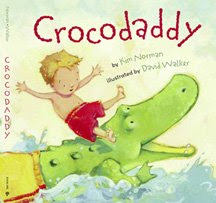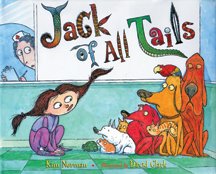
Here's a sample of a query that led to a quick sale. I'll admit, it's a teensy bit "name-droppy," but graciously so, I hope. I guess it didn't bother the intended recipient because she responded within 7 days that she'd like to see the manuscript, which she bought about 10 weeks later. I've since co-presented with this editor in a workshop called "Birth of a book." She said that, indeed, she appreciates your mentioning any acquaintances you have in common, as long as it's a genuine association. And, of course, you'll want to clear the name-drop with your friend before using his/her name.
I'd prefer all names below to remain anonymous, so I've replaced "dropped" names with "(insert mutual acquaintance's name)." And of course, I've removed the name of the editor. Hey, I'm not going to do ALL your work for you!!
(Editor's name & title)
(Publisher's address.)
Dear Ms. (Editor,)
(Insert mutual acquaintance's name), a member of my online critique group, suggested you might be interested in my 267 word picture book, The Crocodaddy, which follows a fearless “Crocodaddy hunter” as he stalks his sly, playful father. I placed the action in a pond, although the game originated between my sons and their father in our tiny backyard pool. The young hunter repeatedly tries to tame the wiley Crocodaddy. He nearly manages in this stanza, when he leaps onto the Crocodaddy’s back:
(Here I inserted 3 short stanzas from the work. Actually, 2 stanzas and a refrain. They're each short-lined quatrains which totaled about 52 words for all three stanzas.)
I’m the author of the humorous picture book, Jack of All Tails, (DUTTON, 2007.) A long-standing member of the SCBWI, I edit their “Highlighter” Mid-Atlantic newsletter. In 2000, I illustrated The Museum Duck, (PEARL LINE PRESS), and my poem, “Mirror, Mirror, O’er the Sink,” was published in Rolling in the Aisles, (MEADOWBROOK, 2004.)
With its summer setting and father/child action, I believe The Crocodaddy has potential as a Father’s Day favorite. I’ve enclosed SASE for your response. I’m also querying several other houses about this manuscript.
Regards,
Kim Norman
P.S. - (insert OTHER mutual acquaintance's name) says “hi,” too! I’m in her in-person crit group, which will miss her terribly when she moves soon!
###
Couple o' notes about my query style:
While I want to appear professional, I try to avoid the kind of stilted business language they used to teach in typing class 30 years ago. So I use contractions where they seem appropriate, and it goes without SAYING that I never use the phrase, "Please find enclosed..."
Oops. I just said it anyway.
If you don't have any names to drop, not to worry. I received plenty of "yes please" responses way back when I knew not a soul in the children's book biz. So as long as you're professional and offer an enticing story, many editors -- even at the biggest houses -- will ask to see your full manuscript if it looks like a good fit for their line.
It's interesting to note that, when we presented that workshop together, my ed said she liked that I mentioned the potential marketing niche of the book, (my mention of Father's Day.) She also liked that I included a snippet of the text so she could get a feel for the story's language.
This letter marked a change in how I worded the information about this being a multiple submission. (It went to one other large house, who also requested the ms. but, alas, it was sold by then. Kind of a nice position to be in, though!) Anyway, in the past, my letters barely whispered the "MS" word... er... words. I'd drop it as a euphemism as far near the end of the letter as possible. Or I'd just put "Mult. subm" way down in the bottom corner.
This time, as you can see, I stated it plainly in the closing paragraph. You never know when an editor coveting a potentially scarce commodity will work in your favor!
Oh, and I'll end on an encouraging note: I misspelled "wily" in the query, (did you spot it?) The editor forgave me and bought the manuscript anyway. So don't let perfectionism get in the way of submitting your stories. Editors like to see clean, professional submissions, but they understand that everyone makes the occasional boo boo. In fact, the editor at that OTHER house, (the one who requested the manuscript after it had sold), is equally forgiving. Once, previous to this submission, I
Kim Norman



